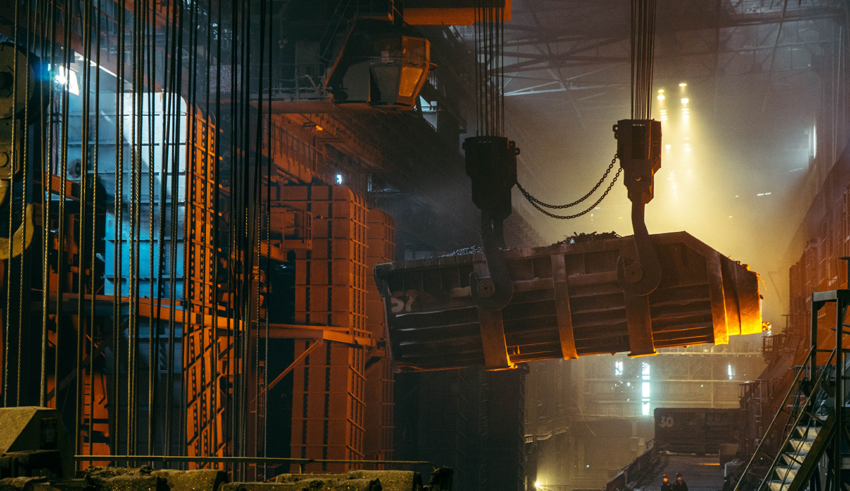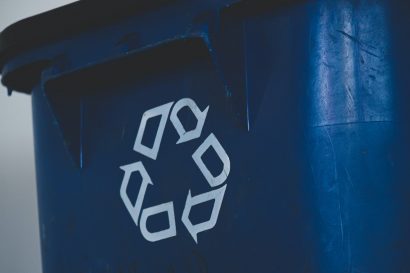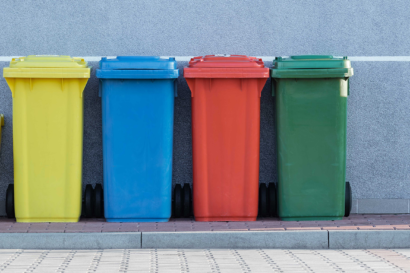AG INSIGHT | 30/10/2018
Why we shouldn’t settle for doubled resource productivity

Lucy Curtis, Sustainability Consultant at WSP, argues the business case for driving increased resource efficiency beyond current government targets.
Eventually, every finite resource that we use – the gravel and sand we make concrete with or the petrol we put in our cars – will run out.
In the UK, we use an extravagant amount of resources, creating 3kg of material for every £10 we spend. If everyone in the world lived like we did in the UK, we would require 2.7 planet Earths to sustain our need for material resources. This is what led our government’s Department for Environment, Food and Rural Affairs (Defra) to set a target in the UK’s 25-Year Environment Plan for us to double our resource productivity – the ratio of economic gain to materials consumed – by 2050, allowing us to do the same things and live a similar way but only creating half as much ‘stuff’.
Having said that, our resource productivity is increasing anyway. If we look at this trend from recent decades and the current policies in place, it seems that we’re not only predicted to reach Defra’s target but in fact surpass it. If we carry on this way, without any further policy intervention, we will be tripling resource productivity by 2050.
Does this then mean that we’re sorted, that we’ve tackled and solved our problem of resource overconsumption? In short, no.
A greater challenge than expected
As it stands with our predicted economic growth, tripling our resource productivity by 2050 would essentially mean we still need 1.9 Earths to provide us with enough resources to live on.
The challenge we’re therefore faced with is that, no matter how much we’ve been reducing our material use up to this point, UK policymakers, industries and consumers need to implement some drastic changes to improve our resource productivity six times over by 2050 to live in a world with a sustainable amount of resources. Given that we have not even improved resource productivity by one and a half times since 2000 and Defra’s target gets us nowhere near to tackling this problem, it seems an insurmountable challenge.
But we must stay optimistic. We are making strides with resource efficiency every single day, from our successes in decreasing fossil fuel use in the power sector to improving resource efficiency in building and infrastructure design. In recent weeks, we saw the UK’s first Green GB Week, dedicated to celebrating our successes since the release of the UK Clean Growth Strategy last year and bringing attention to the challenges that lie ahead. Clean growth is about reducing carbon emissions, but it should also about growing our economy while not using up all materials at the detriment to future generations. And with fossil energy materials making up one third of all resources consumed in the UK, the chance we have at tackling both carbon emissions and resource productivity problems at the same time is significant.
The way forward
With the economic uncertainty and lack of government focus brought on by Brexit, we should not be waiting for government to review their resource productivity target. What we can be doing now is finding ways to implement higher levels of resource productivity into our ‘extravagant’ lifestyles. If we use less in the first place and reuse everything we do use, we won’t run out of materials.
We need to improve energy infrastructure to accommodate for greater clean power generation and electricity demand; we need to learn how to lay a road from reused tarmac; we need to prepare for the uptake of cleaner heating and cooling mechanisms; and we need to design our building structures with future use in mind. There is a massive amount of opportunity available for business and industry to tackle these tasks without the requirement of reviewed government policy. WSP, for example, have developed ten practical recommendations to accelerate resource-efficient, circular design in buildings and infrastructure. It will be this way of thinking, and the desire for competitive advantage in the business world, that will drive innovation and inspire changes in mainstream practice to deliver a truly sustainable, resource productive economy.
Lucy Curtis is Sustainability Consultant, Sustainable Places, Energy and Waste, at WSP


